For Eric Ripert, cooking is like jazz. Ad-libbing, balance, motion.
“One day the garlic is very pungent, one day it is not pungent. One day the onion is very juicy and sweet, one day it’s less, so you have to adapt all the time,” says the celebrated chef, who is the co-owner of Manhattan’s Le Bernardin, a close friend of the late Anthony Bourdain and a TV personality in his own right. “So, it’s very similar to music — I do not play the same notes all the time, I take a lot of freedom and liberties. Because I can.”
Ripert is French but has — like his storied restaurant — become a New York institution. The chef lives on the Upper East Side with his glamorous, dark-haired wife Sandra (a real-estate broker who is Brooklyn born-and-raised, of Puerto Rican descent). Together they share their twenty-year-old son Adrien, an architecture student at Syracuse University.
Every day he walks to Le Bernardin: through Central Park in the mornings and along Madison Avenue at night (“it’s very dreamy with all those stores and windows”). Every day, without fail, he eats lunch at the restaurant, choosing to skip dinner. In between he manages a staff of 175, writes cookbooks, does television appearances and plans new menus (at the time of writing, he is working on spring, starting with seasonal vegetables).
When we meet at the Le Bernardin offices — an underground warren with garish fluorescent lighting — Ripert, fifty-eight, who is tall and distinguished-looking, is in uniform. His silver-gray hair is slicked back. He wears dark sneakers and dark trousers paired with a crisp white chef’s jacket, trimmed with blue; in his pocket sits a tasting spoon. On his left wrist he has a silver watch; wrapped around his right a string of muddy brown Buddhist beads.
But what strikes you most is his aura: Ripert is disarmingly modest and kind, and, although he talks with a heavy French accent, gesticulating unconsciously as he goes, he gives a sense of firm softness. Much of this boils down to his discovery of Buddhism in 1989, when he read the Dalai Lama’s acceptance speech for the Nobel Peace Prize.
As a young chef, he says, “I emulated some of my mentors and I also had a short temper. And I was very, very tough to deal with. I would have tantrums and thought that anger is a quality, when it is a weakness. Until I finally opened my eyes, thanks to Buddhism at least.”
Ripert’s fury emanated from a troubled childhood. While his mother was supportive, his father died when he was just eleven and his stepfather, as he details in his bestselling 2016 memoir 32 Yolks: From My Mother’s Table to Working the Line, was unnecessarily cruel.
At fifteen, Ripert moved away from home to attend culinary boarding school and by seventeen he was working at the historic Parisian restaurant La Tour d’Argent. He learned much of his craft at the three Michelin-starred Jamin under Joël Robuchon, who was demanding, difficult and sometimes verbally abusive. In 32 Yolks, Ripert describes being given the task of squeezing ninety impeccably arranged dots of sauce onto the plate — it led him to dream of dots for years.
As he moved up the ranks, Ripert followed the example of his stepfather and superiors. But anger made him blind to the needs of others. It also made him miserable. At Le Bernardin he wants the staff who “come here to blossom, to blossom,” regardless of their status. He wants the dishwashers, many of them immigrants, “to be respected and have dignity.” As a vocal spokesman against the pervasive culture of maltreatment of staff in restaurants, he believes that being supportive improves productivity — and protects owners from lawsuits.
It seems to have worked. Last November, Le Bernardin was, once again, named the best restaurant in America by the ranking site La Liste. It holds three Michelin stars. And it has earned the maximum of four stars in the New York Times (Ripert’s first four-star review from the newspaper was in 1995, the year he became part-owner; the restaurant has since been given four stars six times).
So how did a Frenchman not only conquer the New York dining scene but hold onto it for so long? “This is the history of New York — New York is made by immigrants,” he says, throwing up his hands. “The Irish, the Puerto Rican, the Jewish, everybody came here!”
As for the restaurant, it “became an institution because we survived.”
Today, Le Bernardin feels very much a stalwart of the kind of fine dining relied on by business accounts and an older clientele who appreciate things done a traditional way. The sommeliers wear heavy silver chains with round shallow tastevins slung around their necks, in order to taste and check the quality of the wine they open at the table.
There are shimmery gray curtains hiding the madness of the midtown streets outside, which create a rarefied, soft light usually reserved for the lobbies of five-star hotels. Wood paneling lines the ceiling, and comfy chairs sit on a thick carpeted floor. Ripert likens it to a luxury yacht where “suddenly, you disconnect… and you are in a different universe.”
But if the décor feels like it hasn’t been changed for a decade, and revels in a comforting uptown stuffiness, the menu, having undergone significant updates, is the opposite. Fresh and innovative, it refrains from veering into novelty for novelty’s sake.
When Gilbert Le Coze opened Le Bernardin in New York in the 1980s, he served the classic food of his hometown of Port Navalo in Brittany. Taking over the reins following Le Coze’s sudden death of a heart attack in 1994, Ripert started to weave in other influences: the food of Antibes, in the south of France, where he was born, and of Andorra on the Iberian Peninsula, where he grew up. He added flavors of South America, where he traveled frequently, and ideas incorporated from his experiences dining out in New York, a verifiable United Nations of food.
The result is a menu — concentrating almost entirely on seafood — that is thrilling, even if diners eat in respectful hushed tones. The chef’s tasting menu (an extravagance at $310 per person; $480 with wine pairings) is an orgy of flavors from the ocean, ranging from the classic — dover sole panroasted with green olives and a sherry wine emulsion — to the experimental. A tuna tartare-sea urchin toast plays with opposing textures: the soft, buttery tart tuna and the spongy urchin are set off by the crunchy toast.
Each dish is united in accordance with Le Bernardin’s raison d’être: seafood is the star of the plate.
“And whatever goes with [the seafood] is there to elevate,” elaborates Ripert. “I don’t like fussy,” he adds, making an exaggerated face. “I don’t like gimmicky… and I don’t like complicated when it’s not needed. I won’t be condescending or negative, but for me when I see food with a lot of tiny flowers, it doesn’t do it for me.”
It’s no surprise, then, that Ripert’s latest cookbook, published in October, is called Seafood Simple. While the New York Times critiqued the recipes as “not so simple,” Ripert gently rebuffs the putdown. His book, he says, demystifies the process of buying and cooking seafood: it breaks down the process of, say, filleting a fish or salting it. To help are dozens of step-by-step photographs, featuring Ripert’s own hands.
The chef’s biggest piece of advice? “Fish doesn’t smell of fish. When it’s fishy it means it’s old. After that it’s many other things that I’m looking at,” he says of purchasing seafood, a stumbling block for many amateur chefs. “Look at the flesh of the fillet, if it’s yellowy, grayish, dry, already it’s a bad sign. And if it smells it’s really a bad sign. The eyes should be very vibrant and look at you like they’re alive. You poke the fish and you shouldn’t have a fingerprint in it, the flesh should bounce back.”
A defining moment in Ripert’s life came on June 8, 2018, when his close friend and creative collaborator Anthony Bourdain died by suicide, hanging himself in a hotel in Kaysersberg-Vignoble in Alsace. The news sent the food world, and the wider public, into mourning. Ripert, who was there filming an episode of Parts Unknown with Bourdain, discovered him.
He has since founded Bourdain Day on June 25. “It’s the day of his birthday, not when he passed away,” says Ripert. “Very often in TV or the media, people celebrate when they passed away and I’m like it’s nothing to celebrate — let’s celebrate when he was born.”
Ripert once described Bourdain as someone he could laugh with, but also, critically, someone he could be happy to just be with, in silence; they felt comfortable together. Looking back, he believes that Bourdain’s great gift was his authenticity and his aversion to sugar-coating one’s experience of the world.
“He wanted to bring back to people the reality. It was not a traveling show, ‘Oh wow this is beautiful, everything is beautiful.’ If it was a tradition to kill a goat and drink the blood mixed with the milk, well, he was doing it with them.”
There has been plenty of speculation about Bourdain’s death, including the 2022 publication of Charles Leerhsen’s biography Down and Out in Paradise: The Life of Anthony Bourdain, which controversially published the final private and problematic text messages between Bourdain and his girlfriend, the Italian actress Asia Argento. Ripert has kept a dignified silence.
“I decided not to speak about his last days — as you know I was with him,” he says. “He had a young daughter at the time, and I felt like it was not the business of people to have this kind of voyeur attitude about what happened to him… The media, they like drama because it sells, and I didn’t want to be part of that. So I protected the family.” I ask how he feels about it today.
“When you have a dear friend, when your dear friend is no longer with you, you miss him,” he answers.
Ripert has no plans to expand his restaurant — a point he volunteers, and one he’s probably had to justify many times during his long career in America, a country that lionizes hustle and ambition. “I have the mentality of an artisan,” he tells me. “I like to be with my team, I like to know what we are serving, I like to be living the life of the restaurant of Le Bernardin. If I had fifty restaurants, I wouldn’t be able to do that.”
And I believe him: this is a man who may be kind-hearted but who is also headstrong and obstinate and, as all great chefs must be, a little obsessive. When Ripert was at school he flat-out refused to work on subjects he hated, such as math. “I’m going to have a zero, and nobody could force me to study math. I guess I’m a bit stubborn… But it served me well in one sense because I have the life that I want,” he says.
Still, one day, “I’m going to wake up and say it’s over. And that day it will be over… Le Bernardin may not exist anymore,” he admits. At some point he will finally have “accomplished everything that I wanted with a lot of luck. I have been blessed. But it’s normal. Nothing in life is permanent.”
This article was originally published in The Spectator’s March 2024 World edition.



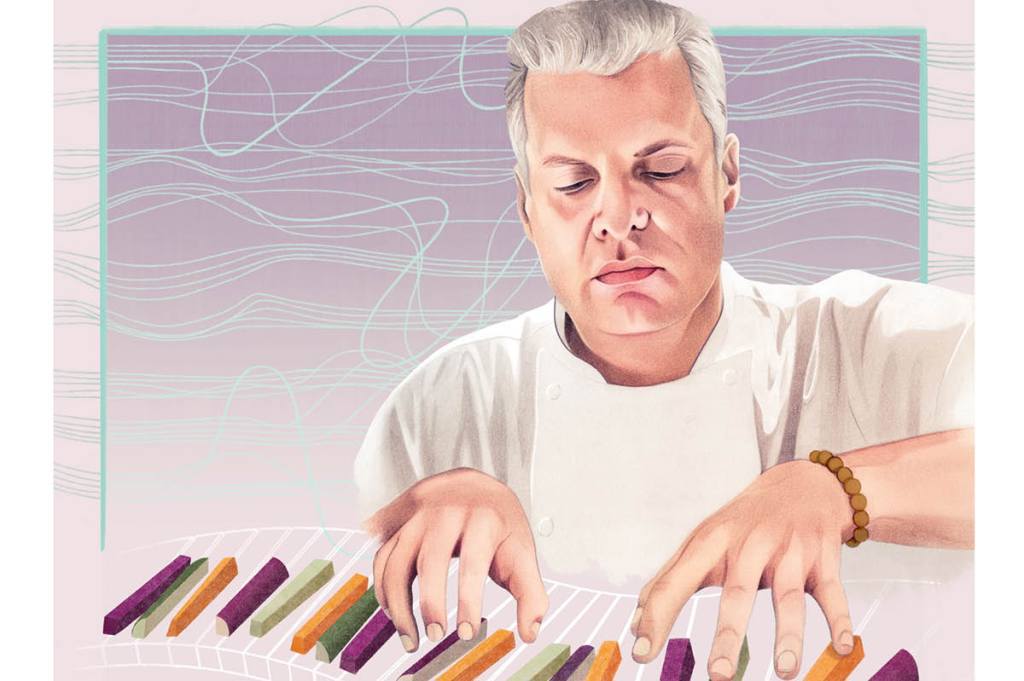








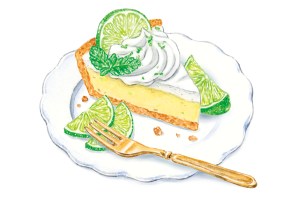
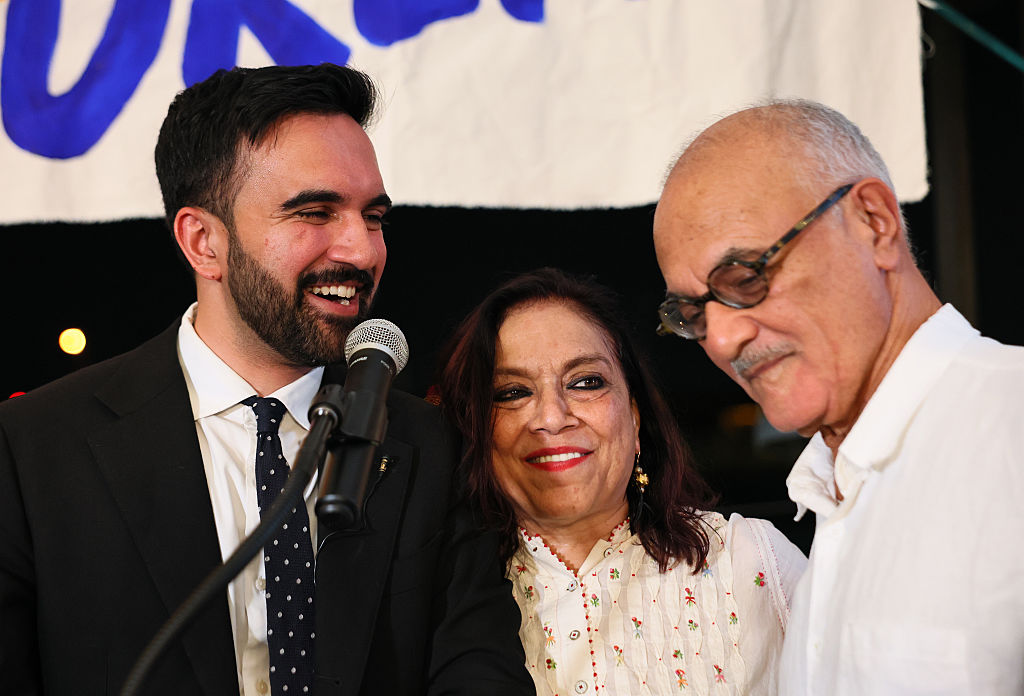
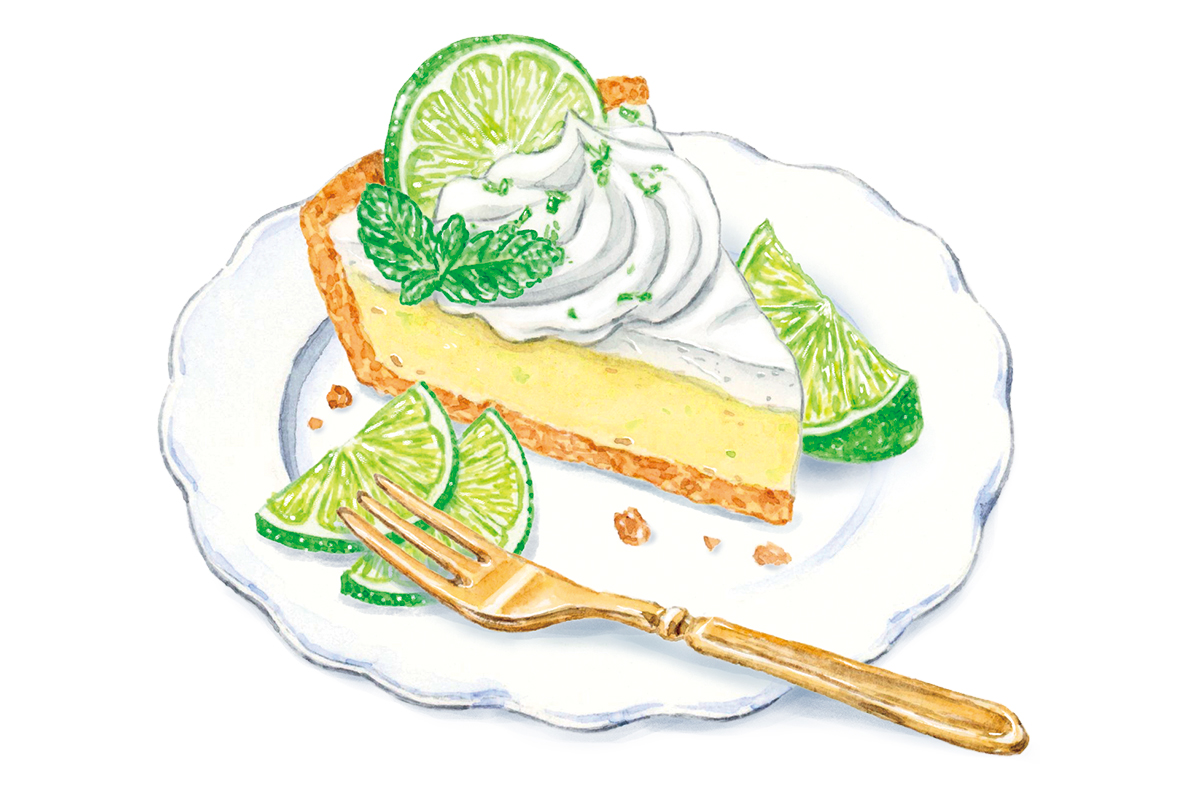

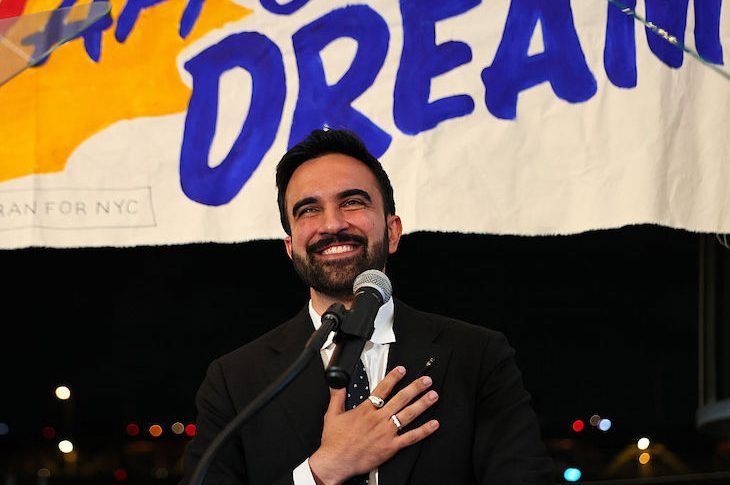









Leave a Reply